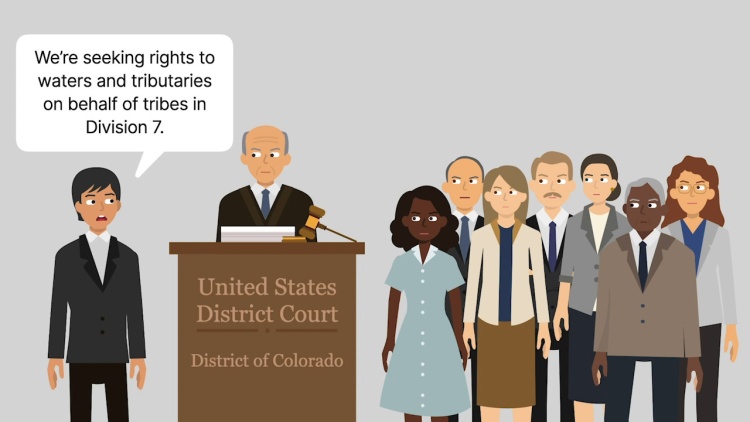Colorado River Water Conservation District v. United States
United States Supreme Court
424 U.S. 800 (1976)
- Written by Robert Schefter, JD
Facts
In November 1972, the United States government brought suit against approximately 1,000 private water users (defendants), asserting reserved water rights of its own and those of Indian tribes over certain Colorado rivers and tributaries. The suit was brought in the United States District Court for the District of Colorado pursuant to the state’s Water Rights Determination and Administration Act of 1969, which governed water rights and usage in the state’s seven water divisions. The law was precipitated by the scarcity of water in this area of the country. The suit also made claims under the McCarran Amendment, 43 U.S.C. § 666, directing that the United States government could be a party to a lawsuit regarding water rights under state law on its own behalf and that of certain Indian tribes. The suit involved water rights in water division number seven, located approximately 300 miles from the district court in Denver. Shortly after this suit was filed, one of the private water users filed an application in the state court for water division seven to have all of the claims heard in that court. Several of the private water users then filed a motion to dismiss in the district court, alleging lack of jurisdiction. The district court granted the motion without ruling on the question of jurisdiction but holding that the doctrine of abstention required deference to the state proceedings. The United States Court of Appeals for the Tenth Circuit reversed, holding that the district court had jurisdiction under 28 U.S.C. § 1345 and concluding that abstention was not appropriate. The United States Supreme Court granted certiorari.
Rule of Law
Issue
Holding and Reasoning (Brennan, J.)
Dissent (Stevens, J.)
Dissent (Stewart, J.)
What to do next…
Here's why 904,000 law students have relied on our case briefs:
- Written by law professors and practitioners, not other law students. 47,100 briefs, keyed to 995 casebooks. Top-notch customer support.
- The right amount of information, includes the facts, issues, rule of law, holding and reasoning, and any concurrences and dissents.
- Access in your classes, works on your mobile and tablet. Massive library of related video lessons and high quality multiple-choice questions.
- Easy to use, uniform format for every case brief. Written in plain English, not in legalese. Our briefs summarize and simplify; they don’t just repeat the court’s language.





